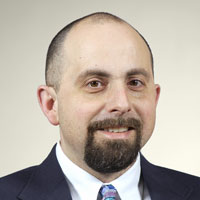非常抱歉,
你要访问的页面不存在,
非常抱歉,
你要访问的页面不存在,
非常抱歉,
你要访问的页面不存在,
验证码:

职称:Professor; Chair, Educational Studies; Professor, Department of Mathematics, College of Literature, Science, and the Arts
所属学校:University of Michigan-Ann Arbor
所属院系:Mathematics Education
所属专业:Mathematics, General
联系方式:734.763.3745
Pat Herbst is a mathematics educator whose research focuses on the nature of the mathematical work that students do in secondary classrooms and on the work teachers do to manage knowledge development. He has studied mathematical work, student thinking, and teacher decision-making in geometry classrooms with particular attention to the use of reasoning and proof to solve problems and develop new ideas. Herbst’s research aims at describing and explaining the work that teachers do to create and sustain mathematical activity and knowing in classrooms; his research also includes identifying and measuring the sources of justification for teachers’ decisions, including knowledge, situational norms, and professional obligations. Herbst has pioneered the use of animated depictions of classroom stories to prompt conversations about instruction among teachers, and using these conversations to understand teachers’ reasoning and decision-making. He teaches courses on mathematics instruction, curriculum, and research in the doctoral specialization in mathematics education, and a course on secondary mathematics instruction for the teacher education program. He received his doctorate from the University of Georgia in 1998. His research includes Thought Experiments in Mathematics Teaching II (ThEMaT II, a National Science Foundation-funded research and development program directed by Herbst and codirected by Dan Chazan at the University of Maryland. The project is developing scenario-based instruments to assess teachers’ decision-making, recognition of instructional norms and obligations, and mathematical knowledge for teaching in high school geometry and algebra. These instruments are being included, along with other resources (instructional modules, software tools) in an online environment (www.lessonsketch.org) for teacher development that supports the learning of mathematics teaching in, and from, practice.
Pat Herbst is a mathematics educator whose research focuses on the nature of the mathematical work that students do in secondary classrooms and on the work teachers do to manage knowledge development. He has studied mathematical work, student thinking, and teacher decision-making in geometry classrooms with particular attention to the use of reasoning and proof to solve problems and develop new ideas. Herbst’s research aims at describing and explaining the work that teachers do to create and sustain mathematical activity and knowing in classrooms; his research also includes identifying and measuring the sources of justification for teachers’ decisions, including knowledge, situational norms, and professional obligations. Herbst has pioneered the use of animated depictions of classroom stories to prompt conversations about instruction among teachers, and using these conversations to understand teachers’ reasoning and decision-making. He teaches courses on mathematics instruction, curriculum, and research in the doctoral specialization in mathematics education, and a course on secondary mathematics instruction for the teacher education program. He received his doctorate from the University of Georgia in 1998. His research includes Thought Experiments in Mathematics Teaching II (ThEMaT II, a National Science Foundation-funded research and development program directed by Herbst and codirected by Dan Chazan at the University of Maryland. The project is developing scenario-based instruments to assess teachers’ decision-making, recognition of instructional norms and obligations, and mathematical knowledge for teaching in high school geometry and algebra. These instruments are being included, along with other resources (instructional modules, software tools) in an online environment (www.lessonsketch.org) for teacher development that supports the learning of mathematics teaching in, and from, practice.